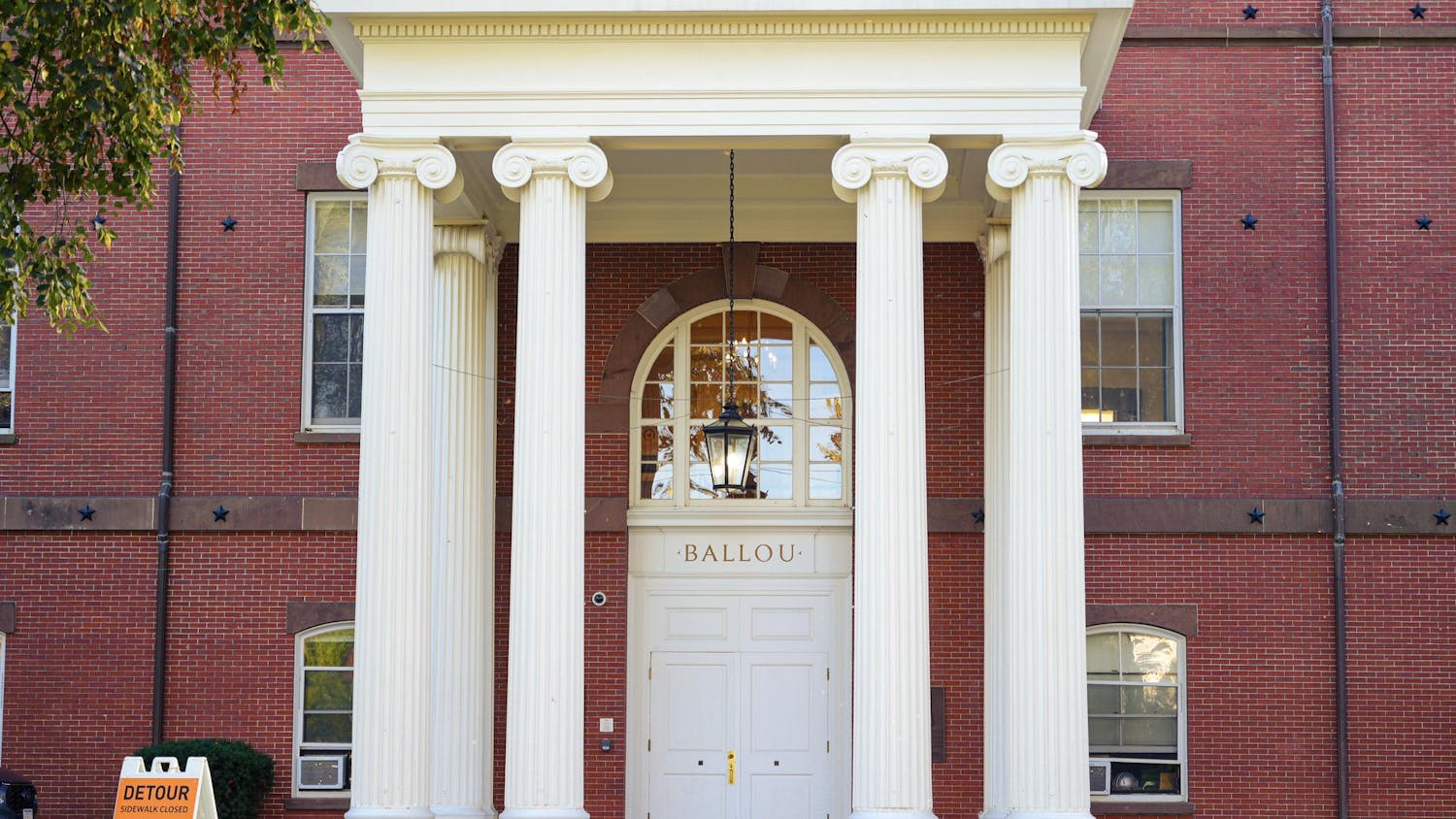Tufts Climate Action staged a protest outside of Ballou Hall on Friday, calling for the university’s complete divestment from fossil fuel holdings. The protest complements the work TCA has been doing since its founding in 2012.
According to junior Julia Silberman, one of the protest’s organizers, the main goal of the demonstration was to encourage the Tufts administration to divest completely from the fossil fuel industry and raise awareness around climate action.
“The climate crisis demands urgent action and we can’t just keep waiting around for bureaucracy to make the decisions that are very important in the fight for climate justice,” Silberman said.
Student organizing in support of fossil fuel divestment is not a new occurrence on Tufts’ campus. Students submitted a proposal that the university divest from fossil fuels in February 2013 and in response, University President Anthony Monaco formed the Tufts Divestment Working Group which, at the time, advised against divestment. TCA again rallied for divestment in February 2020. Members of the organization participated in the Responsible Investment Advisory Group which, in February 2021, recommended that Tufts ban direct investment in “120 coal and tar sands companies with the largest reserves.” TCA continues to advocate for full, as opposed to partial, divestment.
Helen Cedzidlo, another organizer of the event, emphasized the importance of holding protests in person.
“This [protest] is really helping to bring a lot of awareness to our club because for most of the 2020–21 academic year, we were limited in what we could do,” Cedzidlo, a sophomore, said. “Bringing this event in person to the forefront, where you can’t avoid it or click away from it, is really bringing awareness to our cause.”
Protesting in front of Ballou Hall was a strategic choice by TCA to try and directly engage with the administration. The protest aimed to put pressure on Tufts administration to follow other universities in the Greater Boston area that have started to divest from the fossil fuel industry.
“Earlier this year, Harvard and BU divested … Tufts is definitely behind the curve on this,” Silberman said.
In a written statement to the Daily, Executive Director of Media Relations Patrick Collins said that Tufts has made progress in reducing its endowment’s exposure to fossil fuels.
“Our approach has included restricting the endowment from directly investing in coal and tar sands companies, taking steps to reduce indirect investments in them, and making significant investments in funds that will have a positive impact on reducing our economy’s dependence on fossil fuels,” Collins wrote.
Collins added that the endowment’s current indirect exposure to coal and tar sands companies is approximately 0.7 percent, with 2.9 percent of the total endowment invested in the broad energy sector. He emphasized the difficulty of fully divesting from fossil fuels given that the remaining investments take the form of commingled funds.
“One characteristic of this investment structure is that investors cannot dictate the guidelines of the commingled fund,” Collins wrote. “To divest from one particular industry would require divestment from the entire fund, with potentially significant financial implications for the endowment.”
TCA believes that Tufts is falling behind in its sustainability efforts and that the administration’s past decision to divest from coal and tar sands is not a strong enough action.
“Even though this decision was kind of advertised as being really progressive … they have about 80 million [dollars] still in the fossil fuel industry through indirect investments,” Abigail Harrison, another organizer of the event, said.
TCA does not believe that the administration has followed through on its public commitments to sustainability. Though there have been some instances where the administration has responded positively to TCA activism, they stress that they continue to struggle to make their voices heard.
“In the fall of 2019, we rallied outside Ballou every single week for about six weeks,” Silberman said. “Eventually, [we] were successful in getting the attention of the administration, which led to the origin of the Responsible Investment Advisory Group.”
Despite the progress made with the Responsible Investment Advisory Group, TCA still believes that the Tufts administration doesn’t live up to its sustainability standards.
“When it actually comes to the practicality of activism, they don’t really support it,” Silberman said. “They like to pretend that they’ve always been on board with these activist movements, because it helps to support their image, so they often co-opt the work of activists that have been really hard-won battles.”
Harrison, a sophomore, echoed Silberman’s sentiment, labeling the administration’s behavior as greenwashing.
“Greenwashing is the idea of ... pushing this front of sustainability, while simultaneously not … taking direct actionable steps toward being sustainable,”she explained.
TCA believes that it is important for Tufts to divest from the fossil fuel industry not only as a practical measure to encourage a cleaner climate but also to make a statement as a prominent university.
“It makes a political statement, and it shows that the world is moving away from the direction of fossil fuels, which are really the main contributor to climate change,” Harrison said.
However, beyond setting an example for other universities and institutions, Cedzidlo said divesting from fossil fuels is in Tufts’ own interest.
“From a practical sort of standpoint, we cannot be funding companies that will be making the planet much more difficult to live on for all of us who will be graduating 10 to 20 years from now,” Cedzidlo said.






